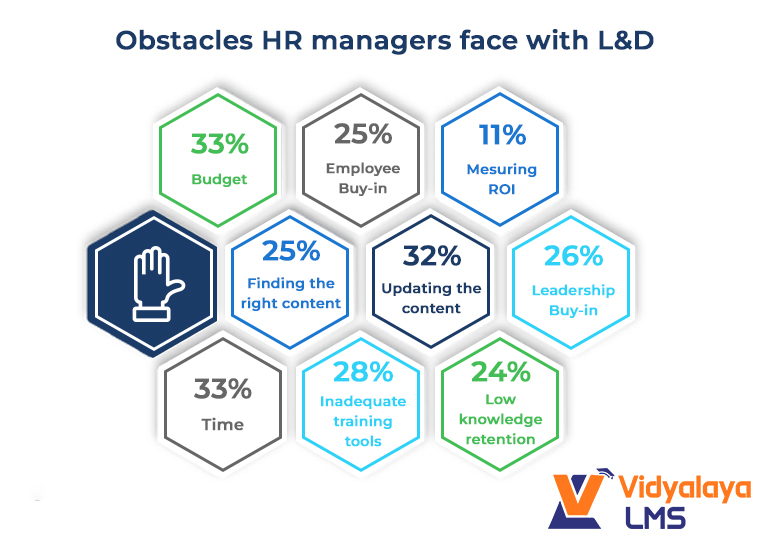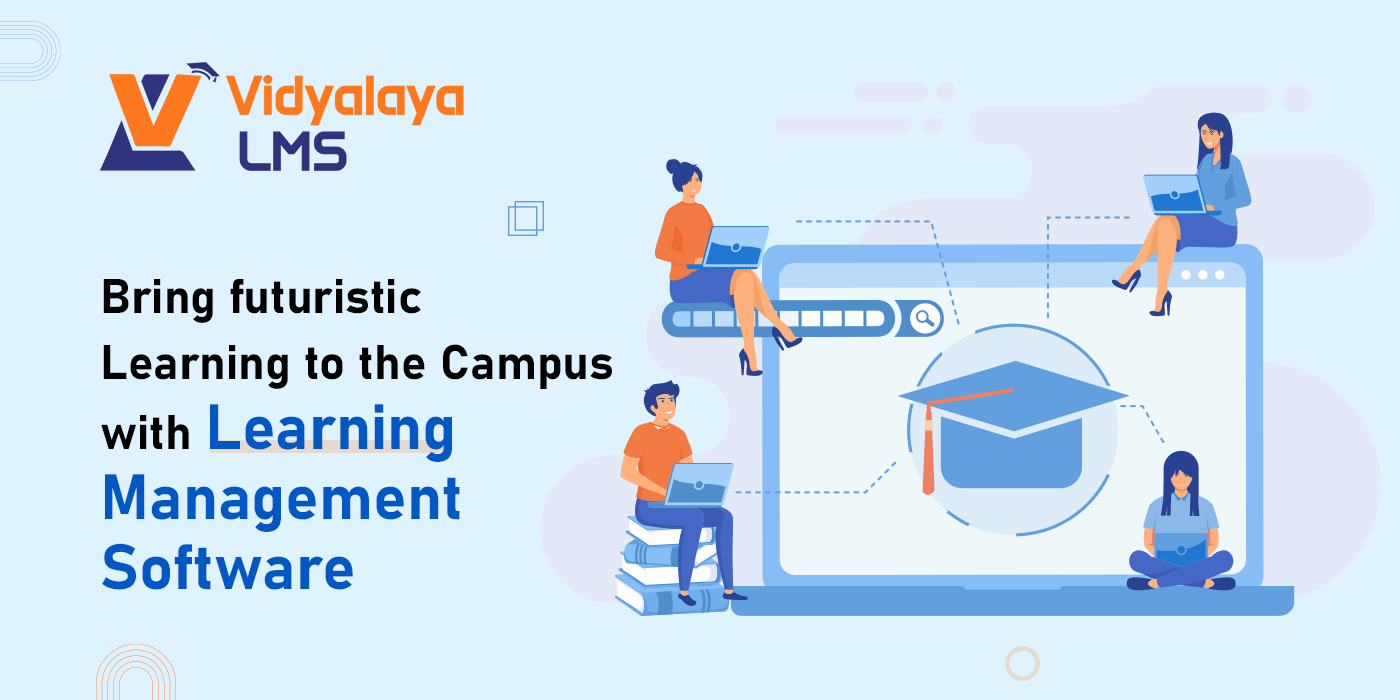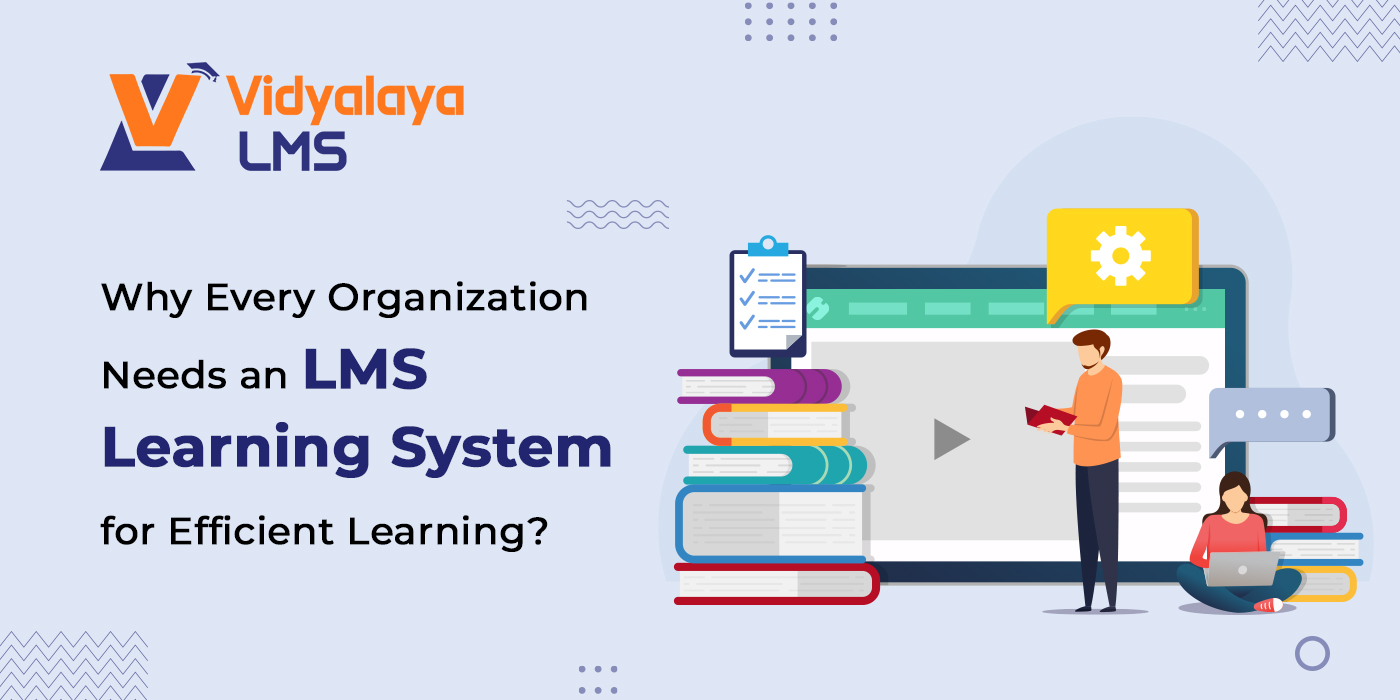“Job training empowers people to realize their dreams and improve their lives.”- Sylvia Burwell.
In every professional career, training regarding the relevant job profile is one of the primary phases. It helps people develop new skills and improve existing ones, which can impact performance and result in success in their careers afterwards. Training increases the knowledge and skills of an employee for accomplishing a particular task. Understanding the significance of every organization implementing a standard training process. With the advancement of time, organizations have moved to automated options with the help of tailor-made learning management software. Let’s learn why and how this modern EdTech product is essential for modern training solutions!
What is a Learning Management System?
A learning management system (LMS) is comprehensive software that helps create, manage, and deliver learning material. It provides a platform for online learning and assessments and enables tracking employee progress through a common platform.
What are the challenges in the current Learning and Development activity?
Currently, HR professionals are trying to improve the learning and development activities in the offices. Based on different requirements, the following figure shows the obstacles faced by HR managers, which clearly states that finding the right content, time scarcity, and budgetary constraints are the major ones.

The best learning management system tackles all these challenges. The features empower organizational growth and shape the employee experience. Additionally, the tailor-made LMS can cater to industry-wise compliance regulations and training specifications. Organizations can easily track and deliver mandatory training programs and certifications and mitigate legal and regulatory risks.
Why a Learning management system is must-have for modern training solutions?
The best learning management system brings several benefits along with harnessing employee engagement and retention. Here are some of them:
1. Systematic Training Process:
The creation and distribution of training content can be very tricky. The ADDIE model consists of steps like Analysis, Design, Development, Implementation, and Evaluation, which ensures better results in the training process.
Analysis:
The trainer needs to understand the content created and also needs to analyze the existing ones. He/she should examine all aspects and get the right answers to 5 W’s and 1 H’s.
Design:
Here, educators need to come down to practical phases of design considering all the findings in the first phase of analysis. Here, factors like strategies, assessment, delivery methods, etc. are decided.
Development:
Courses are created regarding the prototype confirmed in the previous phase. Here, one thing is ensured almost all decisions in the design phase are being developed.
Implementation:
Referring to the last three stages, here training courses are ready, and now learners can explore them. These courses are planned, designed, developed, and delivered to learners through an LMS platform.
Evaluation:
Evaluation of courses and learner progress is the final step of this model. Here, organizational tutors also confirm whether the goals set in the first phase are met or not.
2. Inspirational and Engaging Training Process:
LMS motivates and engages the learners throughout the training process by enabling them the freedom to learn at their own pace. They can access the information anywhere, anytime, and with the device of their choice. The best learning management system offers an engaging platform with flexible patterns.
3. Centralized Learning:
A Learning management software saves time of access by keeping all learning material in one place. It offers better accessibility to educators and learners and this centralized platform streamlines the entire training process. LMS courses are curated and meant for group or team learners.
4. Interactive Solution:
With the learning management system, training sessions are no more boring. It makes the process interactive and effective by enabling students to participate in the learning process and ensuring they do not lose interest. With techniques like multimedia content and gamification, the engagement factor keeps improving. Through different reward systems and various tracking techniques, educators can track the employee’s progress and can work on the gaps.
5. Cost Effective Solution:
There are some free learning management systems available in the market, and some are operating at very negligible cost. When compared to manual systems, this cost is very affordable, and organizations can save significant costs in terms of resources like manpower, time, energy, and money. Also, the system and course upgrades are available on a much smaller budget.
What are the common Use cases for LMS in the corporate industry?
We have listed some of the major use cases relevant to the corporate industry.
Customer Training:
Right from onboarding new employees to offering tutorials and training, a learning management system offers a wide variety of engaging online courses. Even in-built reporting and analytics can help you to get ROI tracking.
Partner Training:
A good Learning management software creates and shares product knowledge and training material with other members like partners, franchises, resellers, etc.
Employee onboarding:
A LMS system improves employee onboarding experience by providing all relevant information to newly hired employees and offers freedom to learn at their own pace.
Employee Development and Retention:
Not only for new hires but existing employees also get benefits from a learning management system in terms of being aware of opportunities for career development, helping to bridge skill gaps, and boosting retention and engagement.
Ending Thoughts!
Employee training is a never-ending process, and requirements change with time and changes in workflows. Modern organizations rely on modern solutions like learning management software to improve the process and bring affirmative changes. It provides a centralized and accessible platform for delivering training content, tracking learner progress, and assessing performance. The valuable data and analytics provide greater insights into learner engagement, training outcomes, and course effectiveness.
Vidyalaya’s best learning management system is one of the most-demanded products across the sectors and is facilitating organizational users to improve the training process. Let your remote teams also collaborate and accomplish the training for personal and organizational growth. Drop us an mail or contact us to elevate customer engagement, boost sales, and upskill employees with our top-notch LMS system!











